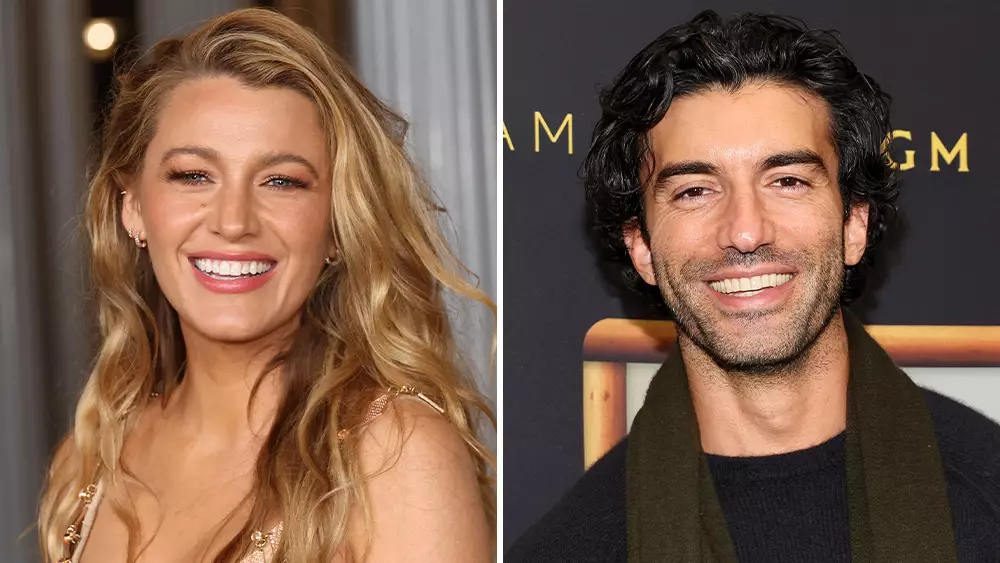The glitz and glamour of Hollywood often mask a pervasive darkness. Behind the scenes of the film industry, the serious issues of sexual harassment and retaliation continue to echo in high-stakes litigation. The recent lawsuit filed by Blake Lively against her co-star and director Justin Baldoni, as well as his company Wayfarer Studios, has brought these issues to the forefront in a compelling yet troubling narrative. This case encapsulates the complexities of workplace dynamics in a field famed for its creativity and charisma, but marred by troubling patterns of behavior and an alarming silence around them.
Blake Lively’s legal action is set against the backdrop of her filming involvement in *It Ends With Us*, a project that has quickly turned contentious. Her complaint, originally filed with California’s Civil Rights department, accuses Baldoni and his associates of orchestrating a hostile work environment. This environment, according to the claims, was not merely a series of unfortunate incidents but part of a “carefully crafted, coordinated, and resourced retaliatory scheme” designed to silence Lively for raising concerns about workplace treatment.
The crux of Lively’s argument rests on the assertion that Baldoni and his team created a hostile workplace wherein speaking out was met with retaliation, ultimately prompting her decision to escalate the matter to federal court. Her lawsuit is not only a demand for damages but also a clarion call for accountability in an industry failing to confront problematic behavior directly.
As the lawsuit unfolds, its implications extend beyond the individual parties involved. The film industry has long struggled with its approach to allegations of misconduct, often resulting in public relations fiascos that ensnare numerous individuals. The accusations lodged by Lively and the counterclaims by Baldoni come against a backdrop of intense scrutiny of Hollywood’s treatment of women and marginalized voices.
Justin Baldoni’s response includes a defamation lawsuit against the New York Times, claiming that their reporting misrepresented the communication strategy employed by his PR team. His insistence on innocence, coupled with claims of Lively’s alleged attempts to instigate conflict, provides a counter-narrative that complicates the public’s understanding of this legal drama. As these legal battles unfold, they exemplify the growing rift between powerful industry players and those who dare to speak out against them, making it apparent that the era of silence is drawing to a close.
Lively’s case also coincides with broader cultural shifts within Hollywood, where movements like #MeToo have emboldened individuals to speak out against misconduct. Her experiences have become emblematic of a new era of awareness where the power dynamics of the industry are being questioned. This cultural awakening encourages open dialogues about the need for safe and respectful working environments.
In many ways, the legal maneuvers surrounding Lively’s lawsuit reflect an ongoing struggle between maintaining brand image and addressing serious moral questions. As both sides prepare for a trial that could reshape public perception of those involved, the prefabricated narratives that often shield industry players from accountability are starting to fracture, revealing a more complex reality.
As this high-profile lawsuit approaches its day in court, the outcomes could potentially reshape industry standards and practices. The public’s fascination with celebrity culture often glosses over the ugly truths that lie underneath. However, Lively’s bold actions serve as a powerful testament to the idea that stars are not immune to the same accountability expected in any workplace.
The implications of this case reverberate beyond Lively and Baldoni; they set a precedent for future allegations of harassment and retaliation. This situation compels industry leadership to reconsider how they handle complaints and foster a culture of respect and safety, acknowledging that the silence that protected wrongdoers is no longer tenable.
As the legal battles rage on, the spotlight remains on Hollywood to reevaluate and reform its practices, empowering voices like Lively’s to spark necessary dialogues that aim to uplift the industry rather than perpetuate cycles of silence and fear. The outcome may very well be a catalyst for change, both for the parties involved and for the film industry as a whole, reminding everyone that the real story often lies beyond the screen.

Leave a Reply